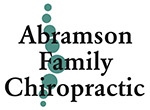Mobilization and Exercise for Shoulder Pain
Among a group of 23 patients with shoulder pain lasting longer than six weeks, those treated with a combination of glenohumeral mobilization with movement and shoulder exercises—an approach often used by doctors of chiropractic—experienced meaningful improvements in shoulder pain, disability, and range of motion within one month. Journal of Manual and Manipulative Therapeutics, February 2022
Excessive Drinking Can Reduce Disease-Free Years
According to a study that analyzed data from twelve cohort studies with over 120,000 total participants, individuals who drink more than 14 units of
alcohol a week (approximately seven to eight bottles of beer or glasses of wine, or 14 single servings of spirits) may experience up to six fewer years of life free from chronic disease. The Lance Regional Health, Europe, May 2022
Negative Effects of a High-Fat Diet
A recent animal study found that within 16 weeks, rats on a highfat diet developed hypertension, insulin resistance, and a decreased sensitivity of the tubuloglomerular feedback (TGF) mechanism, which is important for kidney function. American Journal of Physiology-Renal Physiology, May 2022
Many Kids in Daycare Don’t Get Enough Exercise
Investigators observed 96 childcare centers and 131 Head Start programs and found the majority failed to provide kids with the recommended 180 minutes a day of physical activity of any intensity, including 60 minutes of moderate-to-vigorous intensity exercise. Pediatrics, May 2022
Age Determines Risk Factors for Dementia
Using data from the Framingham Heart Study, researchers report the following are age-associated risk factors for dementia: hypertension at age 55, heart disease at age 65, and a history of diabetes or stroke after age 70. Lead author Dr. Emer McGrath writes, “Dementia is a complicated disease and risk prediction scores need to be tailored to the individual…Our
findings support the use of age-specific risk prediction scores for dementia instead of a one-size-fits-all approach.” Neurology, May 2022
Vitamin D, Sleep, and Post-Stroke Depression
Following a review of health records of 223 stroke patients, researchers report that individuals with vitamin D deficiency and poor sleep who suffer a
stroke have an increased risk for post-stroke depression when compared with stroke patients with good sleep hygiene and healthy vitamin D status. Journal of Affective Disorders, July 2022
“Never be bullied into silence. Never allow yourself to be made a victim. Accept no one's definition of your life; define yourself.” ~ Harvey Fierstein
This information should not be substituted for medical or chiropractic advice. Any and all health care concerns, decisions, and actions
must be done through the advice and counsel of a health care professional who is familiar with your updated medical history.
